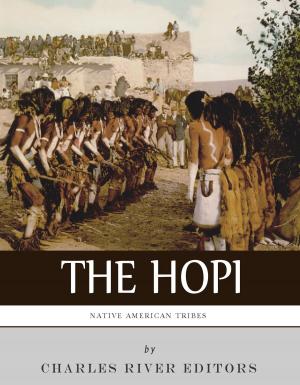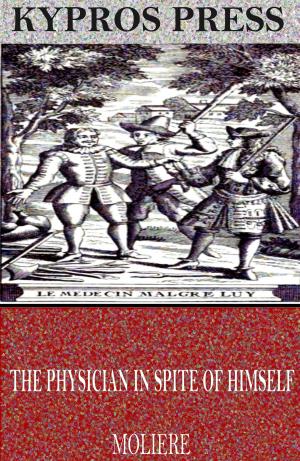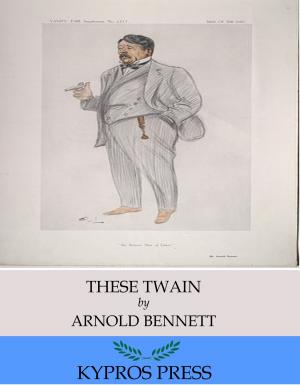Narrative of Military Operations During the Civil War (Illustrated Edition)
Nonfiction, History, Americas, United States, Civil War Period (1850-1877), 19th Century, Military| Author: | Joseph E. Johnston | ISBN: | 9781619823440 |
| Publisher: | Charles River Editors | Publication: | February 6, 2012 |
| Imprint: | Language: | English |
| Author: | Joseph E. Johnston |
| ISBN: | 9781619823440 |
| Publisher: | Charles River Editors |
| Publication: | February 6, 2012 |
| Imprint: | |
| Language: | English |
During the Civil War, one of the tales that was often told among Confederate soldiers was that Joseph E. Johnston was a crack shot who was a better bird hunter than just about everyone else in the South. However, as the story went, Johnston would never take the shot when asked to, complaining that something was wrong with the situation that prevented him from being able to shoot the bird when it was time. The story is almost certainly apocryphal, used to demonstrate the Confederates frustration with a man who everyone regarded as a capable general. Johnston began the Civil War as one of the senior commanders, leading (ironically) the Army of the Potomac to victory in the Battle of First Bull Run over Irvin McDowells Union Army. But Johnston would become known more for losing by not winning, as well as the one who Robert E. Lee replaced after Johnston was wounded in 1862 at the Battle of Seven Pines during the Peninsula Campaign. Johnston was never badly beaten in battle, but he had a habit of strategically withdrawing until he had nowhere else to go. When McClellan pushed him back to Richmond, it was his replacements assaults that pushed the Union back. When Sherman pushed him back to Atlanta in 1864, he was relieved of command. Johnston and Jefferson Davis had a volatile relationship throughout the war, but Johnston was too valuable to leave out of service. As it would turn out, it was Johnston, not Lee, who surrendered the last major Confederate army in the field, in late April 1865, truly ending the war. Johnston did so over Jefferson Davis command to keep fighting, incurring his wrath, surrendering to Sherman, who would become his close friend after the war. Johnston would die in 1891 after contracting pneumonia from a cold day that found him being an honorary pallbearer at Shermans funeral. Given Johnstons important and controversial role in the Civil War, he was one of the most prominent Southerners to write a Civil War memoirs, and he had much to defend himself against. Johnston gives an extremely detailed account of the war, a defense of his actions, and criticism of Jefferson Davis all over. One of the most interesting parts of Johnstons memoirs come at the end, with his letters, telegrams, and even an anecdote about the origins of the Confederate Battle Flag. This edition of Johnstons invaluable memoirs is specially formatted with images of important leaders, original commentary and analysis, and a linked Table of Contents.
During the Civil War, one of the tales that was often told among Confederate soldiers was that Joseph E. Johnston was a crack shot who was a better bird hunter than just about everyone else in the South. However, as the story went, Johnston would never take the shot when asked to, complaining that something was wrong with the situation that prevented him from being able to shoot the bird when it was time. The story is almost certainly apocryphal, used to demonstrate the Confederates frustration with a man who everyone regarded as a capable general. Johnston began the Civil War as one of the senior commanders, leading (ironically) the Army of the Potomac to victory in the Battle of First Bull Run over Irvin McDowells Union Army. But Johnston would become known more for losing by not winning, as well as the one who Robert E. Lee replaced after Johnston was wounded in 1862 at the Battle of Seven Pines during the Peninsula Campaign. Johnston was never badly beaten in battle, but he had a habit of strategically withdrawing until he had nowhere else to go. When McClellan pushed him back to Richmond, it was his replacements assaults that pushed the Union back. When Sherman pushed him back to Atlanta in 1864, he was relieved of command. Johnston and Jefferson Davis had a volatile relationship throughout the war, but Johnston was too valuable to leave out of service. As it would turn out, it was Johnston, not Lee, who surrendered the last major Confederate army in the field, in late April 1865, truly ending the war. Johnston did so over Jefferson Davis command to keep fighting, incurring his wrath, surrendering to Sherman, who would become his close friend after the war. Johnston would die in 1891 after contracting pneumonia from a cold day that found him being an honorary pallbearer at Shermans funeral. Given Johnstons important and controversial role in the Civil War, he was one of the most prominent Southerners to write a Civil War memoirs, and he had much to defend himself against. Johnston gives an extremely detailed account of the war, a defense of his actions, and criticism of Jefferson Davis all over. One of the most interesting parts of Johnstons memoirs come at the end, with his letters, telegrams, and even an anecdote about the origins of the Confederate Battle Flag. This edition of Johnstons invaluable memoirs is specially formatted with images of important leaders, original commentary and analysis, and a linked Table of Contents.















